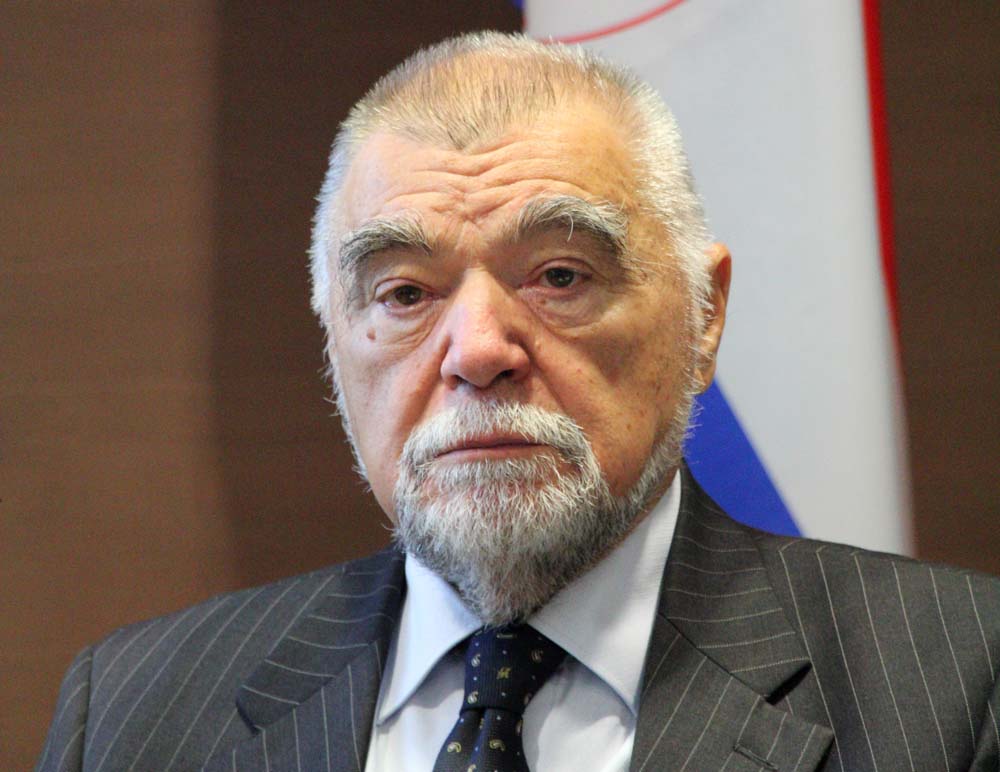Baku, Azerbaijan, Dec. 21
By Fikret Dolukhanov - Trend:
Development has become the Zeitgeist of Azerbaijan, former President of the Republic of Croatia Stjepan Mesic said in an interview with Trend and Azernews.
“Enhancing the country’s prosperity, security, the government has positioned itself regionally and globally as a modern economy, not just the oil-dominated one,” he said. “I visited fascinating Azerbaijan during my presidency and many times after that, and I have witnessed huge changes bringing economic prosperity to Azerbaijan that has been posted as the President’s and the government’s priority.”
Speaking of Azerbaijan’s economic progress, Mesic underlined that decline in world oil prices in 2016 and 2017 revealed how President Ilham Aliyev’s preference of the diversification strategy of Azerbaijan’s development was important for the country’s stability.
“The economic results based on market economy reforms are here and as a young independent country, Azerbaijan works to resolve social and political development challenges,” he noted.
Mesic reminded that Azerbaijan had the world’s highest rate of GDP growth (reaching 34.5 percent in 2006) that put the country on progressive road.
Turning to Azerbaijan’s energy policy, the former Croatian president pointed out that Azerbaijan is a growing energy partner for the EU, and the Southern Gas Corridor (SGC) begins to manifest its pivotal role in the future energy map of Europe.
“Azerbaijan is a geopolitically important country and its section of SGC raises its strategic importance further,” he added. “This partnership’s significance extends far beyond SGC and its starting point, Shah Deniz 2 gas field in Azerbaijan.”
Mesic went on to add that the European Union has taken many actions on the basis of the Ashgabat Declaration (2015) to closely develop cooperation with Azerbaijan as one of gas suppliers and transit countries.
He noted that the energy revenues and developing export routes for growing gas production stay central, allowing Azerbaijan to diversify its GDP through investments abroad and at home in mega-projects and other non-energy sectors, like agriculture, logistics, information technology and tourism.
The Azerbaijani government has given high prominence to combating corruption, Mesic said, adding that all these achievements have won approval of OSCE and the European Union, he said.
Touching upon Azerbaijan’s achievement and especially its improved position in World Economic Forum (WEF) ranking, the former Croatian president said that this should be seen as a result of Azerbaijani government's policies focused on continuously opening the country to foreign investments thorough building a favorable macroeconomic environment.
“This transformation through improving the country’s infrastructure, education and business environment have been profound and in deep national interest of Azerbaijan,” he noted. “This period of transformation is not over and the country needs more support and understanding of international institutions in its process of integration into global economy, which is in deep change and radically diverged from the idea of economic globalization a decade ago.”
Mesic expressed hope that the EU-Azerbaijan Partnership Priorities, diplomacy will in a longer view considerably and comprehensively improve the sides' relations.
The Azerbaijani model of multiculturalism and a positive policy of state-religion relations contribute to improvement of cooperation between the EU and Azerbaijan, he noted.
“I have attended several international, economic and intercultural forums held in Baku, and discussions were more and more on multilateralism, opening Azerbaijan to new forms of interconnectedness, as well as economic liberalization and intercultural communication,” he said.
The former Croatian president noted that by upgrading this high level of religious tolerance and harmony, the Azerbaijani government has successfully provided the answers that cannot be found for modern challenges.
“The concept of remarkable religious tolerance that featured Azerbaijani everyday life sends an essentially needed message to the world that in a Muslim majority country with a long history of secularism, Christianity, Judaism, Russian Orthodox Christianity and Albanian-Udi Christianity could be integrated within the society,” he stressed.
“In this time of rising religious intolerance and fracturing of multilateral order, Azerbaijan stands as a desirable model of interreligious dialogue that is worth to be followed,” Mesic said. “This remains foundational for every society that focuses on successful handling of issues emerging from cultural and religious differences.”






